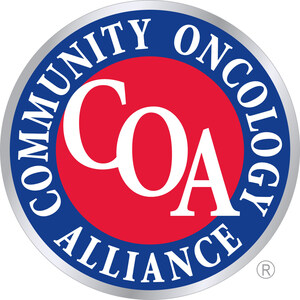Obama Administration Issues New Rounds Of Cancer Care Cuts Amidst Healthcare Reform Chaos
Community Oncology Alliance gravely concerned over severe cuts to cancer care
WASHINGTON, Dec. 18, 2013 /PRNewswire/ -- The Community Oncology Alliance (COA) issued a plea today to Congress to immediately stop the latest round of payment cuts the Obama Administration will make effective January 2014 to providing chemotherapy and other life-saving drugs to seniors with cancer. Additionally, COA called on Congress to stop the sequester cut to cancer drugs by passing the Cancer Patient Protection Act (H.R. 1416), a bill authored by Rep. Renee Ellmers (R-N.C.) and cosponsored by 109 representatives.
The Centers for Medicare & Medicaid Services (CMS) recently announced Medicare fees for 2014, which include severe cuts to essential cancer care services. CMS will arbitrarily cut by 7.4% chemotherapy services payments to physician-run community cancer clinics — where close to 70% of the nation's cancer patients are treated — without any cost-based justification. At the same time, CMS will increase payment to hospitals by 29.9%. This is in direct opposition to the Medicare Payment Advisory Commission's recommendation in their June 2013 Report to Congress that CMS should be achieving payment parity for identical services, regardless of where those services are delivered.
"Our government has consistently and increasingly jeopardized this country's cancer care delivery system," said Dr. Mark Thompson, COA president and an oncologist at the Mark H. Zangmeister Center in Columbus, Ohio. "These latest payment cuts are bad medicine for cancer patients and taxpayers. They will further consolidate cancer care into large corporate medical systems and, in the process, inhibit patient access while increasing costs to patients and taxpayers."
RECENT REPORTS:
- A study by the actuarial firm Milliman found that Medicare pays $6,500 more per beneficiary annualized when chemotherapy is given in outpatient hospital facilities versus community cancer clinics, and each senior patient pays $650 more in out-of-pocket costs.
- A recent study by The Moran Company reveals that Medicare cancer patients receive more chemotherapy treatments with more expensive chemotherapy drugs in hospitals compared to community oncology clinics, resulting in chemotherapy costs that are as much as 47% higher.
- COA reported earlier this year that 469 community cancer clinics had merged into or affiliated with hospital systems and 288 cancer treatment facilities had actually closed over the past 6 years, especially in rural areas. This creates access problems when patients, particularly seniors, have to travel for cancer care.
As has been widely reported, the sequester cut to the underlying cost of cancer drugs has forced cancer clinics to send Medicare patients elsewhere for treatment or merge with large health systems. This drives up costs to Medicare and patients — the exact opposite intent of sequestration. The budget deal just passed by Congress extended the Medicare sequester and further increases the magnitude of the payment cuts just issued by CMS.
"The sequester cut to cancer drugs is a wrecking ball to our cancer care delivery system," said Ted Okon, COA executive director. "To make matters worse, oncologists are being hit by insurers who are cutting them out of Obamacare exchange and Medicare Advantage networks, which recently happened en masse to 170 cancer care providers in Florida. In the midst of this chaos, CMS will reduce cancer care payments even further, with no rationale justification, and is simply driving up costs for Medicare and seniors. It doesn't make sense."
COA's official comment letter to CMS on the agency's 2014 fee schedule for cancer care services can be obtained here: http://www.communityoncology.org/COA-Comment-Letter.pdf
About Community Oncology Alliance (COA)
Community Oncology Alliance (COA) is a non-profit organization dedicated solely to community cancer care, where four out of five Americans with cancer are treated. Since its formation over a decade ago, COA has helped community cancer clinics navigate an increasingly turbulent environment by working together to become more efficient, advocating for their patients, and proactively providing solutions to Congress and policy makers. COA members have testified before both chambers of Congress, authored cancer care demonstration projects, and been instrumental in the passage of oral cancer drug parity legislation, among many other initiatives.
COA also leads a multi-stakeholder group that is developing and implementing an Oncology Medical Home (OMH) cancer care model and is advancing payment reform for cancer care. More information can be found at www.CommunityOncology.org.
The COA Patient Advocacy Network (CPAN) was created in 2010 to advocate for access to local affordable care for all cancer patients. More information can be found at www.COAadvocacy.org.
SOURCE Community Oncology Alliance
WANT YOUR COMPANY'S NEWS FEATURED ON PRNEWSWIRE.COM?
Newsrooms &
Influencers
Digital Media
Outlets
Journalists
Opted In





Share this article